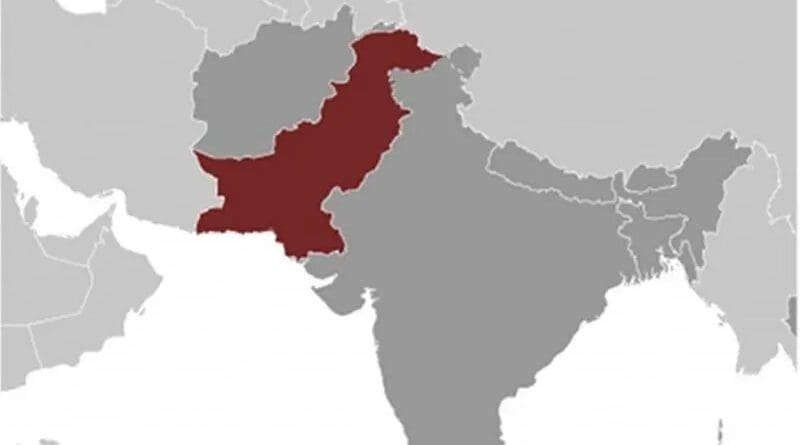The Curious Case Of Pakistan’s Political Crisis And The ‘Foreign Hand’ – OpEd
By stating in his address to the nation that it was America which had written the ‘threatening letter’ to Pakistan, and then quickly correcting himself by saying “I mean a foreign country,” Prime Minister Imran Khan has expectedly stirred up a controversy. While some agree with the official explanation that it was a mere slip of tongue, others feel that it was a ‘staged’ faux pas aimed at gaining public support by capitalising on the widespread anti-US sentiments prevailing in Pakistan. However, with Washington categorically denying any link whatsoever with the purported ‘threatening letter’ that Khan kept referring to, the case becomes all the more intriguing.
Whereas the Prime Minister of Pakistan hasn’t revealed the entire or exact contents of this “message,” certain disclosures made by him that merit attention are as follows:
- One, “We received a message from a foreign country… which was against Pakistan.”
- Two, the originator country “… knew beforehand there was a no-confidence motion coming.”
- Three, the message stated“… that if no-confidence motion passes, Pakistan will be forgiven; if not, there will be consequences.”
Based on these inputs, Khan has made some rather outlandish deductions. Firstly, he seems convinced that the country which issued the message “knew beforehand that a no-trust move was coming [even though] the no-trust motion was not even submitted [at that time], not realising that since the opposition had been demanding his ouster for months, a no-trust motion would be the obvious outcome. Secondly, he is confident that the opposition “was connected with these people abroad [who were conniving to oust him]” Thirdly, this message went on to “say they will forgive Pakistan if Imran Khan loses the no-trust move, but if the move fails, Pakistan will have to go through a difficult time.”
However, rather than providing convincing reasons to substantiate his allegations, Khan’s replies raise several questions, which considering the gravity of the charges levelled by him, demand immediate answers. A few such disquieting queries are:
- When a “foreign country” is complicit in derailing the democratic process in Pakistan and has even gone to the extent of making this intention clear in writing, then why is Khan [who keeps repeating that he’s not scared of any mortal] so afraid to name and shame this country?
- If the message has been sent by a “foreign country” then it’s obviously the handiwork of the concerned government. So, why is Khan referring to the perpetrators as “these people” and “they”? Is this threat from a country or some non-state actors?
- Being directed against Khan and his government, the purported “threatening letter” obviously wasn’t addressed to either? So, could it be meant for Pakistan’s all-powerful military?
While Khan has admitted that Islamabad received this threatening message on March 8, what he hasn’t explained is why unprecedented development was kept under a shroud of secrecy for nearly three weeks. If its contents could be revealed in his March 27 speech, why weren’t the same made public earlier? Furthermore, which “foreign country” would be so naïve as to implicate itself by issuing a written threat to another country? Too many questions, but no answers!
In retrospect, with the number of lawmakers supporting Khan rapidly dwindling as the day of the impending no-confidence motion approaches, both the timing and content of the prime minister’s revelation betray a deep sense of desperation? By saying that “The most disturbing thing is that they [who authored the threatening letter] have links with the people [of Pakistan] through whom the conspiracy happened. They [opposition parties] are stooges, and stooges mean loyal slaves,” Khan has only accorded further credibility to the suspicion of him having orchestrated an artificial crisis just to wriggle out of a politically tricky situation.
The mystery of this letter doesn’t end here. While Imran Khan maintains that it is a “official letter” communicated to a Pakistani envoy, Pakistan daily ‘Dawn’ has quoted senior journalist Imran Riaz Khan, one of the journalists briefed about this letter, telling ‘Samaa News’ that “What they shared with us is that this letter is a conversation between Pakistani officials and officials of another country.” It thus transpires that this so-called “official letter” is actually just a written record of what supposedly transpired during his meeting with the officials of an unnamed country, prepared by the Pakistani envoy.
Hence, trying to pass-off ‘minutes’ of a meeting prepared by a Pakistani envoy as an “official letter” written by “a foreign country” is not only highly misleading but also indicates brazen disregard for diplomatic conventions. As regards the identity of this country, Riaz Khan rightly opines that “According to my understanding, that country is America, but the government did not name the country… They said that Europe and the US are not happy with Pakistan’s stance on Russia and Ukraine.”
So, it’s apparent that Prime Minister Imran Khan did spill the beans through a ‘manufactured’ slip of tongue, which is an age-old but very effective tool of political expediency. Turning philosophical, he also said that while the no-confidence motion was a “democratic” move, “But this [the impending no-confidence motion] is a foreign imported conspiracy and it started when people from abroad started controlling Pakistan through telephone calls.”
Lastly, unable to resist the temptation of heaping praise on himself, the cricketer turned politician has rather presumptuously claimed that he was being targeted only because “They [an ‘unnamed’ foreign country] cannot tolerate a leadership that works in the people’s interest.” Khan may consider himself to be a patriot par excellence but then members of the opposition aren’t quislings either and hence, leave alone a Tsunami, Khan’s rhetoric and wild allegations levelled at members of the opposition is unlikely to even cause a ripple in Pakistan politics!

